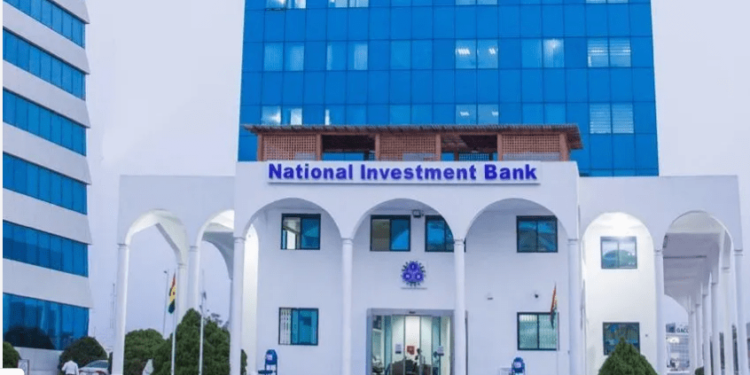The Minister of Finance Dr Mohammed Amin Adam has assured that the Ministry and the Bank of Ghana (BoG) will soon implement a plan to resolve the challenges of the National Investment Bank (NIB).
He described the plan as credible, comprehensive, and cost-effective.
NIB experiencing turbulent years of banking following a switch from its primary duties as bank for local industries to a universal Bank; focusing on development and commercial banking activities, the National Investment Bank (NIB).
Established through an act of parliament and regulated by the Bank of Ghana, the NIB bank currently has over 70% of the Bank’s portfolio made up of loans to the Ghanaian private sector.
With the current economic challenges and banking crisis, analysts suggest the bank’s Non-Performing Loans (NPLs) to both government and the private sector could be higher and negatively affect its books.
But the Finance Minister said during his monthly economic update in Accra on Friday May 24 that “The Bank of Ghana and the Minister of Finance have designed and would soon begin the implementation of a credible, comprehensive and cost-effective plan that seeks to address NIB’s challenges.”
Dr Amin Adam further said that the cabinet has approved a plan for the restructuring and recapitalisation of the National Investment Bank (NIB).
As part of the plan, he said the government will recapitalise the NIB with an amount of GHC2.3 billion in the next 12 months.
Amin Adam said, “As part of the implementation of the PCPEG, the cabinet has approved the plan for restructuring and recapitalisation of the National Investment Bank (NIB). This will require an injection of about GHC2.3 billion and this will be done over the next 12 months.”
“The first tranche of GHC400 million is expected to be transferred to the National Investment Bank before the end of this month. This demonstrates our commitment to implementing the recapitalisation and restructuring programme of NIB. The plan also includes measures to strengthen the governance structure. The government has intervened in NIB in the past and so this time around, the capital intervention is going to be backed by governance reforms in NIB in order to assure us and the people of Ghana to their money that would be put into NIB would be managed well.”
The International Monetary Fund (IMF) had allowed the government recapitalise the ailing bank to improve its liquidity and solvency position.
A Banking Consultant, Richmond Atuahene indicated that NIB needed to undergo good restructuring system from its board of directors and maintain good corporate governance. “NIB has been bedeviled with poor corporate governance practices with ineffective board composition.”
Dr Atuahene further warned that it would be a waste of investment on the bank’s operations, if it continues to have week corporate governance.
He expressed optimism that the IMF will supervise to ensure good governor stricture. “I am sure the IMF will make it a conditionality to ensure that a good corporate governance system is put in place as they talk about the capitalisation of the bank,” Dr Atuahene asserted.
Despite some development of a possible takeover or merger of the Agriculture Development Bank (ADB) and National Investment Bank (NIB), others have called for the privatisation of the Investment Bank to enhance efficient operations of the bank.
This position, Dr. Atuahene believes that holding all factors constant, after the capitalisation of the Bank, it can be listed on the Ghana stock exchange market for some three years to attract more investors with the purpose of putting things in order. He said if the core purpose of the bank’s initial establishment by Dr. Kwame Nkrumah to be a bank for local industries is no longer important at this point, then it should be listed for an improved corporate governance.
“…In 1963 and 1965 Dr. Kwame Nkrumah said I needed ADB to look at Agriculture and NIB to look at industries, unfortunately in 2003, we did the universal banking concert, where they can become jack of all trade and master of none, if we want to sell it, how are we selling as a development bank or a universal bank?,” Dr Atuahene quizzed.







